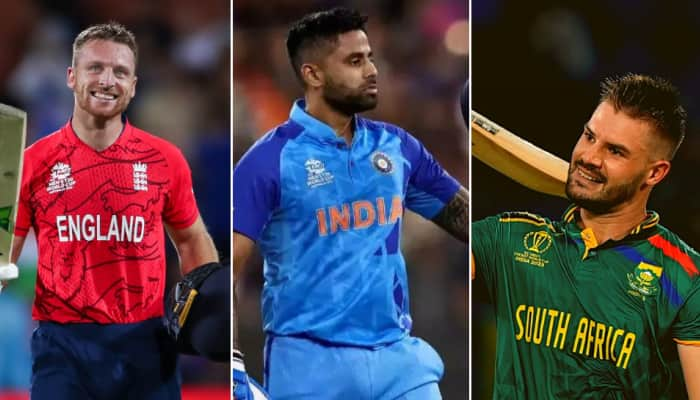Brasilia: Come-from-behind victories have been common at this year`s World Cup, so it seems apt that, after a decidedly shaky start to the tournament, referees have disappeared from the headlines and let the scintillating soccer do the talking.
Croatia coach Niko Kovac warned of a "circus" after Japanese official Yuichi Nishimura`s questionable penalty award in the opening match, which swung the game in host Brazil`s favour and threatened to eclipse Neymar`s brilliance on the pitch.
In the very next game, when Mexico faced Cameroon, not one but two efforts by Giovani dos Santos were disallowed after debatable off-side rulings that left the player fuming.
Oribe Peralta was on hand to spare officials` blushes and secure a 1-0 win for Mexico, but had the match ended in a draw or win for Cameroon, the decisions would not have been forgotten so lightly.
Those contentious rulings feel like a distant memory amid a flood of pulsating matches since, and Massimo Busacca, head of refereeing at the World Cup, said he was happy with the overall standard.
"It is impossible for the referee not to commit any mistake over 90 minutes – same as for the players," he told Reuters on Wednesday by email.
"We try to reduce the mistakes and not to influence the result. Overall, I think we were doing a very good job and I am confident for the rest of the competition."
Busacca declined to comment on specific incidents during the first week of the tournament, although the day after the opening game he did defend Nishimura`s penalty and said it was also up to players to ensure they cut out holding in the area.
GETTING BETTER
A referee`s lot is to have bad decisions remembered and good ones forgotten.
But as Brazil 2014 has progressed, several key interventions have proved to be correct, even if the side on the receiving end did not always see it that way.
Uzbek referee Ravshan Irmatov had been criticised for breaking up play during the Group E clash between Ecuador and Switzerland, but he made amends with a crucial advantage as the Europeans snatched a dramatic win in the 93rd minute.
In another example of good officiating sneaking under the radar, Brazilian referee Sandro Ricci handed Wilson Palacios of Honduras a second yellow card after he charged into French midfielder Paul Pogba seconds before the break.
Karim Benzema stroked home the resulting penalty and, for many neutrals, justice was done as Honduras` highly physical approach came to nothing but a 3-0 defeat.
That game also saw goal-line technology used to decide a goal for the first time at a World Cup.
To the naked eye it would have been near impossible to rule that the whole ball had crossed the line after it bounced off Honduras goalkeeper Noel Valladares, but the new technology showed it was over by inches and an own goal was given.
"For us it was great to get confirmation that the system works," Busacca said.
"We had no doubts, but it is different to use GLT (goal-line technology) in training and to witness such a moment on the pitch during an important match. In certain situations it is impossible to see what happened with human eyes."
Another novelty for World Cup referees this year has been the introduction of "vanishing" spray to demarcate the correct distance defenders can stand from the ball, which has largely done away with encroaching ahead of a free kick being taken.
More fundamental refereeing changes may be afoot, after FIFA president Sepp Blatter last week suggested a system whereby coaches can send up to two decisions per game to a video review.
For now, teams and fans in Brazil must rely on human judgment for virtually every decision, and hope that they are forgotten.
"The less you notice a referee, the better his performance – this is a general principle and definitively also our goal," Busacca said. "We are not the main actors on the pitch."
)







)
)
)
)
)
)
)
)
)
)
